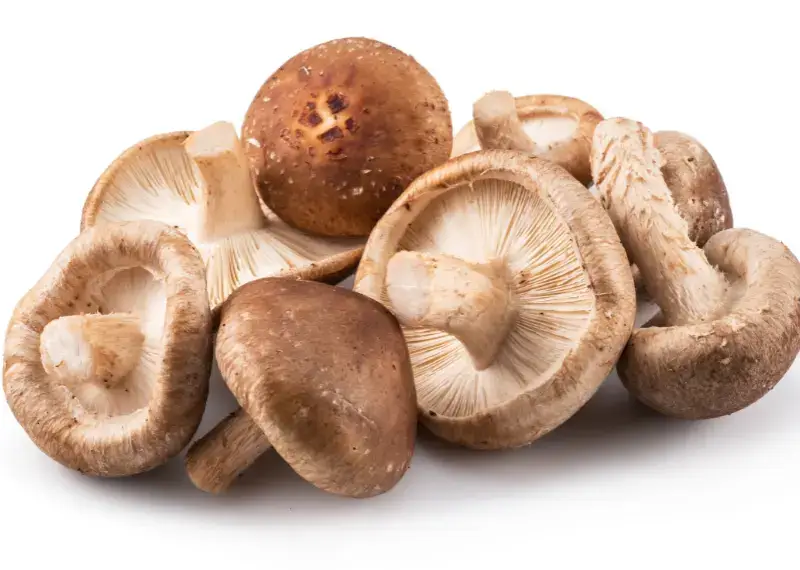Can Dogs Eat Mushrooms? Veterinarian Verified Facts, Benefits & Risks
If you’ve ever caught your dog sniffing around mushrooms during your morning walk, you’ve probably wondered: Can dogs actually eat mushrooms? It’s a question that concerns many pet parents, especially since mushrooms seem to pop up overnight in yards and parks. The short answer is that store-bought mushrooms are generally safe for dogs in moderation, but wild mushrooms can be extremely dangerous and even deadly.
Understanding which mushrooms are safe and which ones pose serious risks could save your dog’s life. Let’s dive into everything you need to know about dogs and mushrooms, backed by veterinarian-verified information.
Table of Contents
Are Store-Bought Mushrooms Safe for Dogs?
Yes, certain store-bought mushrooms are perfectly safe for your furry friend when prepared correctly. Common varieties like white button mushrooms, cremini, portobello, shiitake, oyster, and maitake mushrooms are non-toxic and can even provide some nutritional value. However, there’s an important caveat: these mushrooms should always be cooked plain, without any seasonings, butter, oils, garlic, or onions, as these additives can be harmful to dogs.
While store-bought mushrooms won’t harm your dog, they’re not a necessary part of their diet. Think of them as an occasional treat rather than a dietary staple. The key is moderation and proper preparation. A few small pieces of plain, cooked mushrooms as an occasional snack won’t hurt, but they shouldn’t replace the balanced nutrition your dog gets from their regular food.
What Nutritional Benefits Do Mushrooms Offer Dogs?
Mushrooms pack a surprising nutritional punch that can benefit your dog’s health when fed appropriately. These fungi contain B vitamins that support energy metabolism and nervous system function, plus vitamin D, which helps with calcium absorption and bone health. They’re also rich in essential minerals like potassium for heart and muscle function, copper for blood cell formation, and selenium, which acts as a powerful antioxidant.
Beyond vitamins and minerals, mushrooms provide both soluble and insoluble dietary fiber that supports healthy digestion and gut bacteria. The antioxidants found in mushrooms help neutralize harmful free radicals in your dog’s body, potentially reducing inflammation and supporting cellular health as they age. Despite these benefits, mushrooms should only complement a balanced diet that includes appropriate proteins, fats, and other essential nutrients. Before making mushrooms a regular addition to your dog’s meals, it’s always wise to consult with your veterinarian to ensure they fit into your pet’s specific dietary needs.

The Dangers of Wild Mushrooms for Dogs
This is where things get serious. Wild mushrooms pose an extreme danger to dogs because many species are highly toxic and can cause severe illness or death. Even experienced mushroom foragers can struggle to identify safe mushrooms from toxic ones, and dogs certainly can’t tell the difference by smell or taste. This makes any wild mushroom a potential threat to your pet’s life.
Some of the most dangerous wild mushrooms include the Death Cap (Amanita phalloides), which lives up to its terrifying name, Galerina marginata, Fly Agaric (Amanita muscaria) with its distinctive red cap, False Morels (Gyromitra species), and various Clitocybe and Inocybe species. These toxic mushrooms contain compounds that can destroy your dog’s liver, kidneys, and nervous system. The symptoms of mushroom poisoning can appear quickly or take hours to develop, and include vomiting, diarrhea, abdominal pain, lethargy, tremors, seizures, excessive drooling, stumbling, disorientation, and jaundice (yellowing of the gums and eyes). Without immediate veterinary treatment, mushroom poisoning can be fatal.
What Should You Do If Your Dog Eats a Mushroom?
Time is absolutely critical if you suspect your dog has eaten a wild mushroom. First, try to identify the mushroom if possible and save a sample using gloves or a plastic bag, but don’t waste precious time trying to identify it yourself. Your priority should be getting your dog to a veterinarian immediately or rushing to an emergency animal hospital.
While you’re on your way to the vet, monitor your dog closely for any symptoms like vomiting, diarrhea, lethargy, tremors, or unusual behavior. Do not attempt to induce vomiting at home without explicit veterinary guidance, as this can sometimes cause more harm than good depending on what was ingested. The veterinarian may administer activated charcoal to absorb toxins, provide anti-nausea medications, give anticonvulsants if seizures occur, start IV fluids for hydration and organ support, and run blood work to check liver and kidney function. Early intervention dramatically improves the chances of survival, so never adopt a “wait and see” approach with potential mushroom poisoning.
How to Prevent Mushroom Poisoning in Dogs
Prevention is always better than treatment when it comes to mushroom toxicity. Start by regularly inspecting your yard for mushrooms, especially after rain when they tend to sprout quickly. Remove any mushrooms you find immediately, making sure to pull them up by the base rather than just kicking them over. During walks, keep your dog on a leash in areas where mushrooms commonly grow, such as wooded areas, parks, or anywhere with moist, shady conditions.
Train your dog with a solid “leave it” command, which can be a lifesaver in many situations beyond just mushrooms. Stay extra vigilant during mushroom season, typically in spring and fall when conditions are moist and cool. Consider fencing off areas of your yard where mushrooms frequently appear, and teach children in your household never to feed mushrooms to the dog. Remember that dogs are naturally curious and may investigate mushrooms while sniffing around, so supervision is your best defense against accidental ingestion.
Can Dogs Eat Medicinal Mushrooms?
You might have heard about medicinal mushrooms gaining popularity in human health circles, and you may wonder if they’re safe for dogs, too. Certain medicinal mushrooms like Reishi, Turkey Tail, Shiitake, Maitake, and Chaga are generally considered safe for dogs and may offer immune system support and other health benefits. Some pet supplements now include these mushroom extracts specifically formulated for canine consumption.
However, before adding any medicinal mushrooms to your dog’s regimen, you should always consult with your veterinarian first. They can advise whether these supplements are appropriate for your dog’s specific health conditions, age, and current medications. Not all medicinal mushrooms are created equal, and quality matters significantly. Your vet can recommend reputable brands and appropriate dosages based on your dog’s individual needs.
Comparison Table: Safe vs Toxic Mushrooms for Dogs
Mushroom Type | Safety Level | Nutritional Benefits | Potential Risks |
White Button, Cremini, Portobello | Safe in moderation | Vitamins B & D, potassium, fiber, antioxidants | Mild digestive upset if overfed or poorly prepared |
Shiitake, Oyster, Maitake | Safe in moderation | Immune support, minerals, protein, antioxidants | Digestive issues if raw or overfed |
Amanita phalloides (Death Cap) | Extremely toxic | None | Liver failure, vomiting, death within days |
Galerina marginata | Extremely toxic | None | Gastrointestinal damage, organ failure, death |
Amanita muscaria (Fly Agaric) | Highly toxic | None | Neurological symptoms, tremors, seizures |
Gyromitra (False Morel) | Highly toxic | None | Vomiting, diarrhea, seizures, liver damage |
Clitocybe and Inocybe species | Highly toxic | None | Excessive drooling, diarrhea, seizures, respiratory failure |
Conclusion
When it comes to dogs and mushrooms, the rule is simple: stick to store-bought varieties prepared plain and in moderation, and treat all wild mushrooms as potential threats to your dog’s life. While plain, cooked store-bought mushrooms like white button, cremini, or portobello can be a safe occasional treat offering some nutritional benefits, they’re not necessary for your dog’s diet and should never replace balanced dog food.
The real danger lies with wild mushrooms, which can be impossible to identify safely and may contain deadly toxins. Your best defence is prevention through yard maintenance, leash control during walks, and training your dog to “leave it” on command. If your dog does ingest a wild mushroom, remember that every second counts, and immediate veterinary care could mean the difference between life and death.
By staying informed and vigilant, you can protect your beloved companion from mushroom-related dangers while still allowing them to enjoy safe treats when appropriate. When in doubt, always err on the side of caution and consult your veterinarian before introducing any new foods, including mushrooms, into your dog’s diet.
Frequently Asked Questions
Can dogs eat mushrooms from the grocery store safely?

Yes, dogs can eat certain store-bought mushrooms safely if they are plain and cooked without harmful additives. However, feeding mushrooms is not necessary for their diet and should be done sparingly.
What symptoms indicate my dog ate a toxic mushroom?
Is mushroom poisoning in dogs fatal?
How can I prevent my dog from mushroom poisoning?
Can dogs eat medicinal mushrooms?
Some medicinal mushrooms like Reishi, Turkey Tail, Shiitake, Maitake, and Chaga are considered safe and may have health benefits, but consult your vet before use to ensure suitability.








